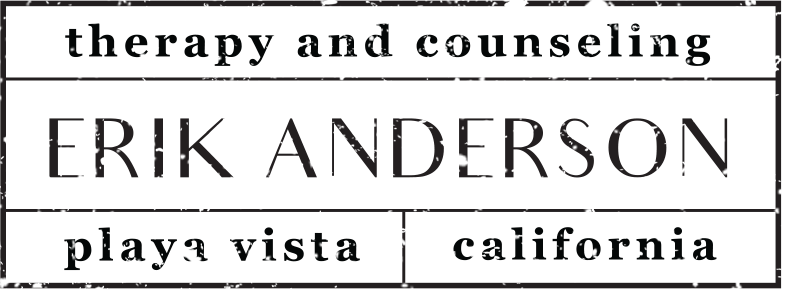Therapy for Anxiety
Anxiety can feel shameful, lonely, and disorienting but anxiety disorders are among the most common mental illnesses in the world. It's estimated that about 1 in 5 Americans has an anxiety disorder,including generalized anxiety disorder (GAD), panic disorder, PTSD, , and obsessive compulsive disorder.
Anxiety symptoms exist on a large spectrum, but they can feel incredibly painful and difficult to manage, often preventing people from living the way they want. If your anxiety is impacting your quality of life, therapy can make a big difference. In my practice, I treat anxiety using a multidisciplinary approach. I blend evidence based interventions along with personalized support focused on your specific needs.
Understanding Your Anxiety Symptoms
Anxiety affects us both physically and psychologically.When physical and psychological symptoms collide, they often feed off each other in a vicious loop.
Physical symptoms (or anxious feelings) can include shakiness, muscle tension, pounding heart, chest tightness, trouble breathing, sweating, nausea and lightheadedness. In some cases, people with anxiety disorders experience panic attacks.
Some of the psychological symptoms include relentless worry, irritability, difficulty concentrating, negative self talk, rumination, dread, and hypervigilance. Anxiety can leave you feeling like something bad is going to happen at any given moment. This tension can shadow you every day, even when life appears smooth on the surface.
Panic Attacks
Panic attacks can vary in duration and intensity, but they may be a recurrent problem for people with anxiety. When you have a panic attack, your brain has detected a serious threat (whether real or imagined), and your nervous system's fight or flight response system is activated. This creates a cascading flooding reaction of sweating, muscle tension, lightheadedness, rapid breathing, and overwhelming anxiety.
Rumination
Thoughts circle like vultures, picking apart every mistake or regret from the past. It might be obvious, replaying that awkward conversation on a loop. Or it might be subtler, a nagging second guessing that robs you of enjoying the here and now. The rumination cycle perpetuates anxiety while also magnifying shame, guilt, anger, or feelings of helplessness while robbing us of the ability to enjoy the present.
Catastrophizing
Catastrophizing refers to becoming fixated on the worst case scenario. You magnify or exaggerate potential problems, jumping to extreme conclusions with little evidence, and becoming preoccupied with worst case scenarios. Focusing on these imagined disasters heightens anxiety and stress, contributing to depression, fear of the future, and a feeling of helplessness.
Obsessing
Obsessive thoughts are recurring, intrusive, and unwanted ideas, images, or impulses that can be difficult to dismiss, even when a person recognizes they may not be rational or helpful. Obsessions are often focused on what could happen and can lead to compulsive behaviors or mental rituals intended to alleviate anxiety. In relationships, this might look like constantly needing reassurance or repeatedly questioning your partner or your own feelings.
Trauma Related Hypervigilance
Heightened anxiety can develop after experiencing trauma. You might freeze or feel overwhelmed by certain triggers without fully realizing it. Your body and mind remain on guard, bracing for danger long after the real threat is gone.
Relationship Anxiety
Relationships can be a significant source of stress, and anxiety may show up with clinginess to your partner, avoidance or standoffish behavior, or a constant fear that you're not good or worthy enough. Anxiety in relationships creates a barrier to genuine intimacy—because you’re forever bracing for the next heartbreak.
How Can Therapy Help You With Anxiety?
Therapy isn’t about erasing anxiety completely. Some anxiety is part of being human. Instead, we work to identify anxiety, gain insight around your reactions, and develop different ways to respond.
In our therapy, we may focus on:
Reframing Negative Thoughts: Uncover the distorted beliefs fueling your anxiety and replace them with more grounded, realistic perspectives.
Coping Strategies: Arm yourself with practical tools—breathing exercises, journaling, or movement—to handle stress head on.
Exposure Therapy: Gradually confront the fears you’ve been dodging, so they lose their power over you.
Relaxation & Mindfulness: Tune into your body’s signals and learn skills that keep you anchored in the present.
Exploring Underlying Issues: Anxiety often has roots in deeper conflicts, traumatic experiences, or core beliefs you might not even know are there.
Leveraging Inner Strength: Develop confidence in your own resilience. Discover how capable you truly are of managing stress and discomfort.
Ultimately, we focus on transforming your relationship with anxiety—recognizing it for what it is and ensuring it doesn’t rule your life. Anxiety will be something you relate to through steady observation and management, not through tyrannical dictation of your every move.
Therapy for Anxiety in the Los Angeles Area
Anxiety can be painful and overwhelming, yet it’s also a highly treatable condition. Without proper care, anxiety has a way of digging in deeper—but with the right strategies, consistent self care, and solid support, you can regain control over your life.
I offer in person sessions for adults in West Los Angeles and virtual therapy for clients throughout California. If you’re ready to stop letting anxiety call the shots, contact me today to begin your path toward relief and self mastery.

